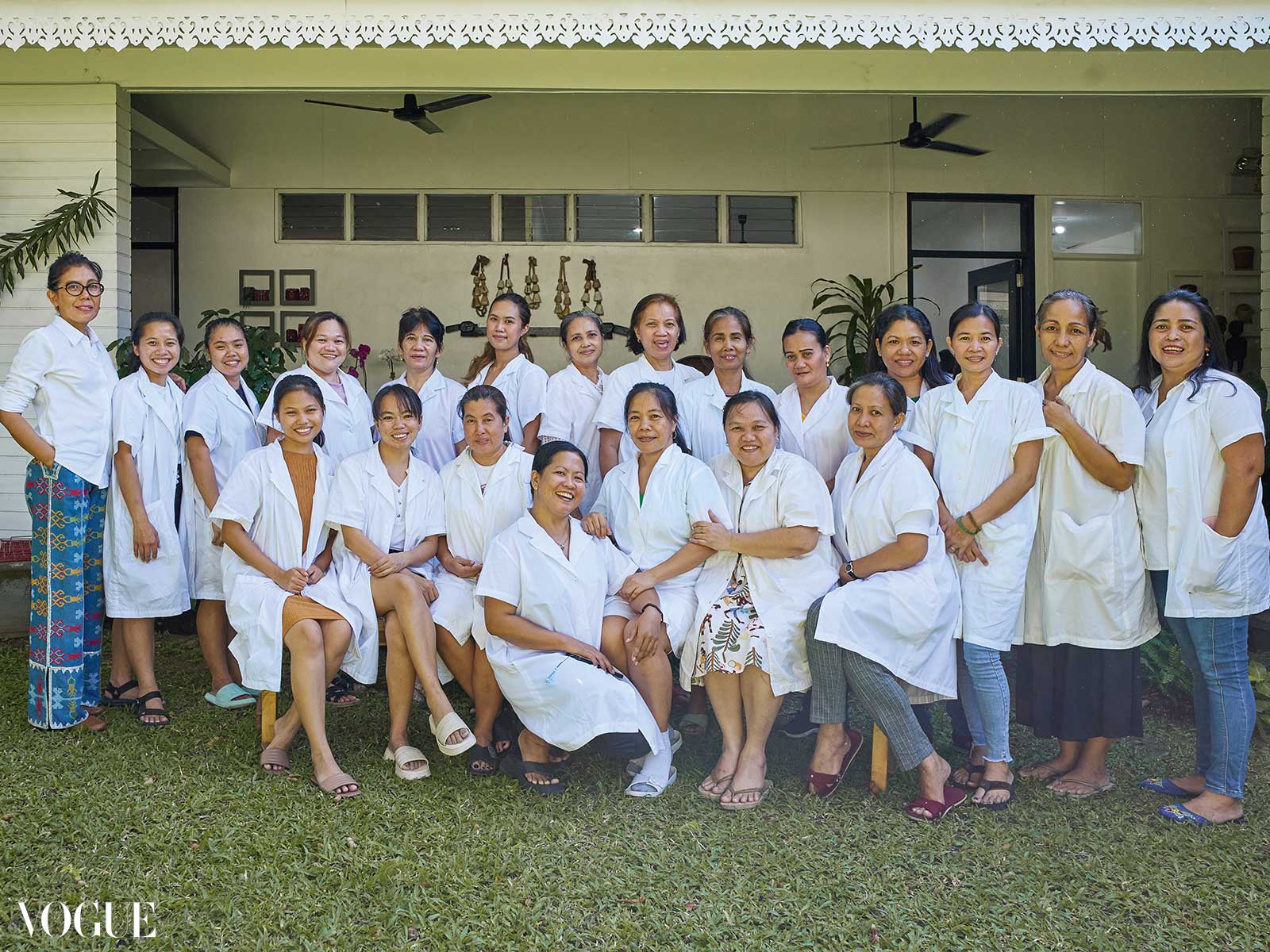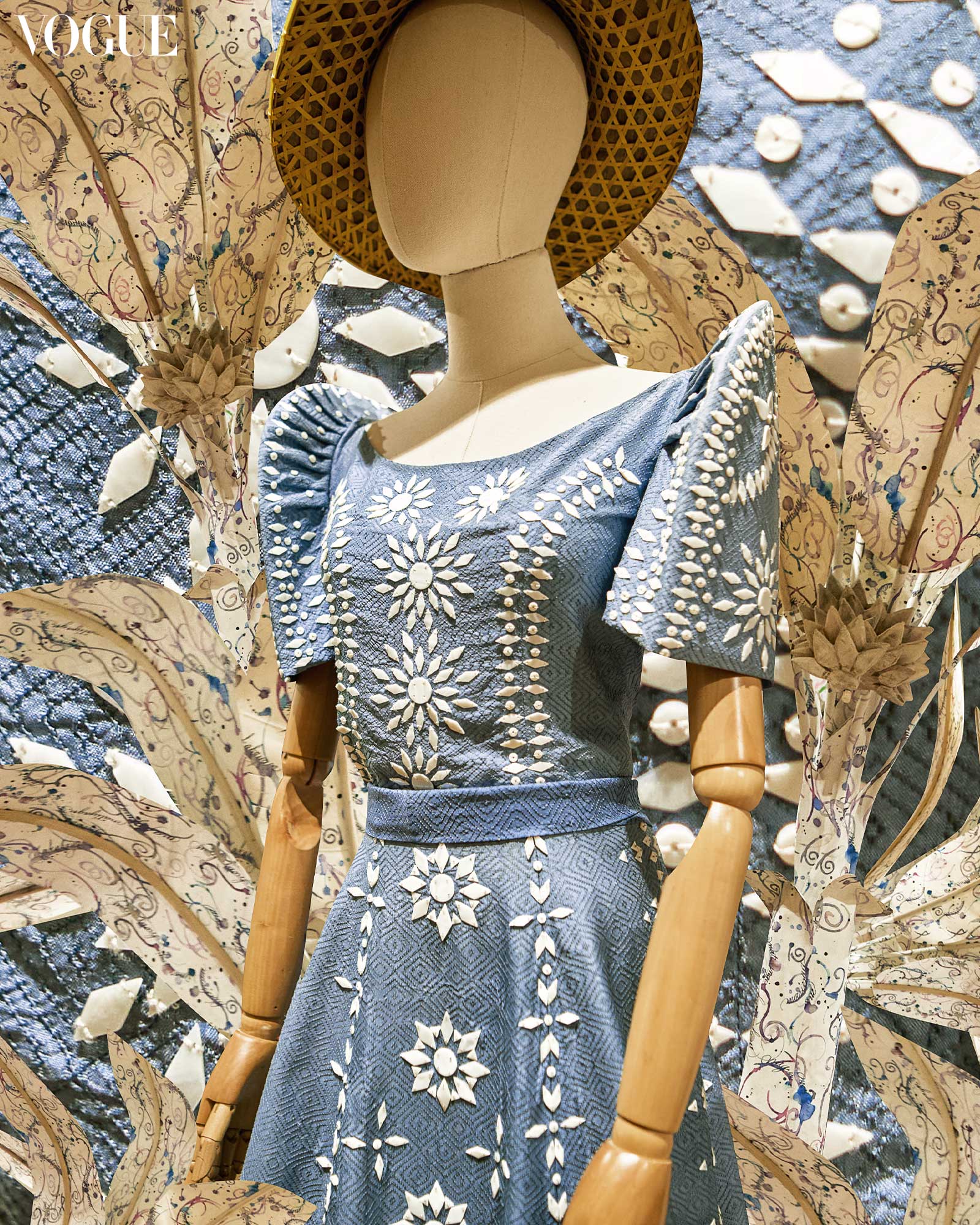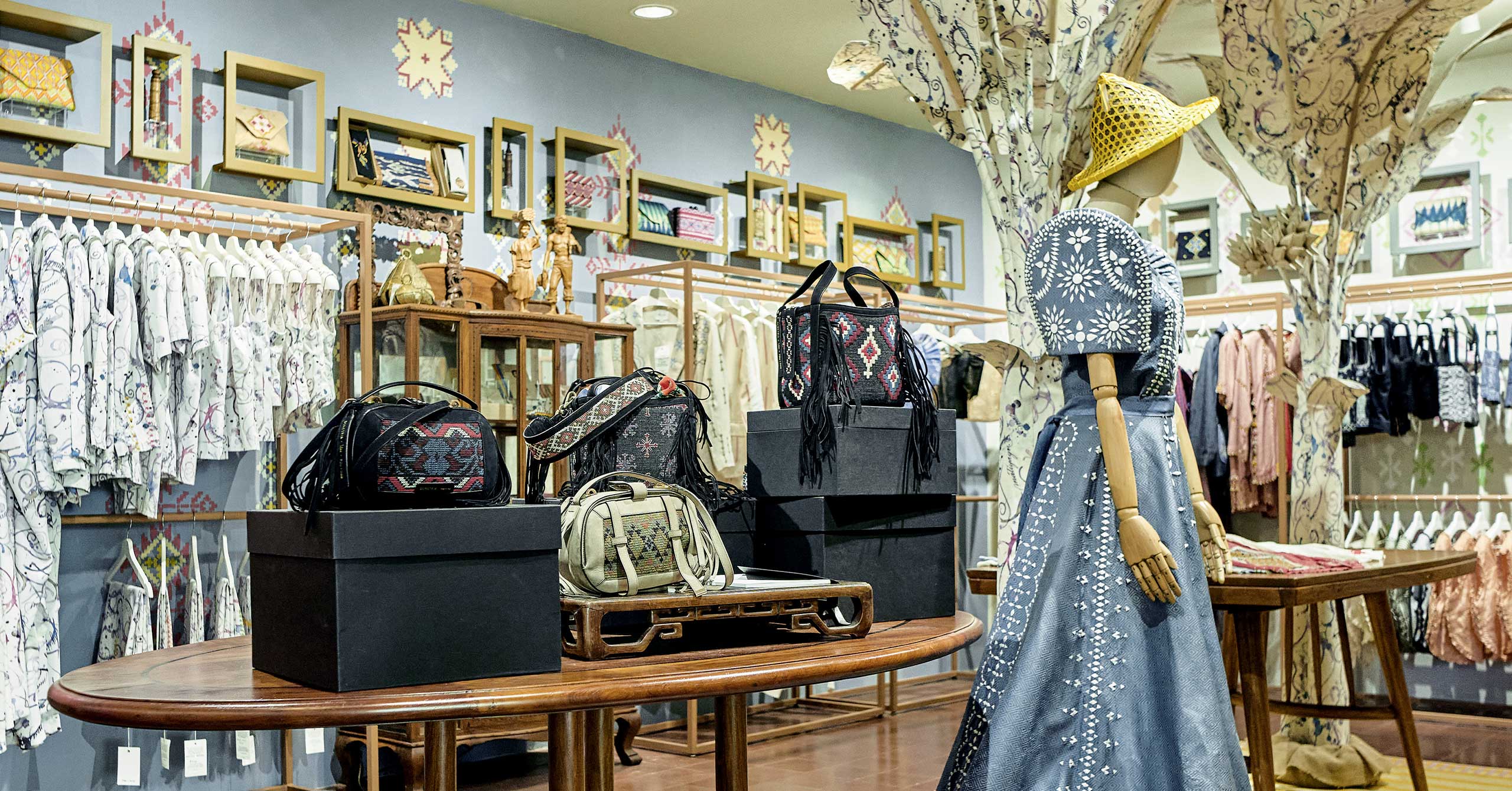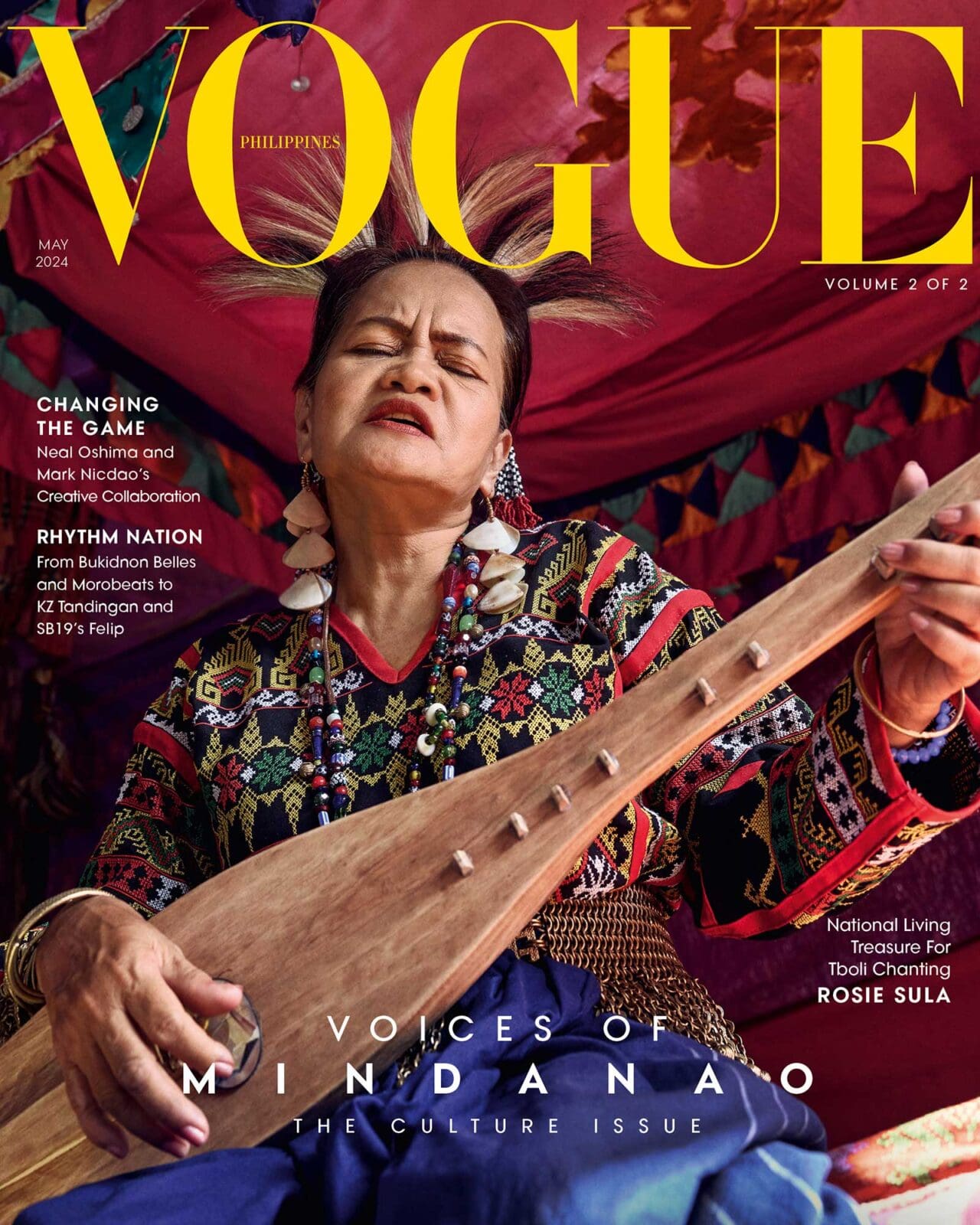Photographed by Kieran Punay
Photographed by Kieran Punay
“The diversity of craftsmanship in Mindanao is really astounding,” the Filip + Inna founder marvels. “I mean, it’s mind blowing.”
Len Cabili was only four when she put on her first baro’t saya. The blouse and skirt is traditionally made with pineapple fiber, but Len’s was cut from another material completely: fabric in the print of their living room couch.
Her mother had the clothes made for Len, her sisters, and their grandmother, and Len recalls how it was obvious that the cloth was only left over. One of them would have the top and skirt in the material, while the other would only have the skirt or the bandana.
The Cabili household, at least the one Len grew up in, was almost never empty. Because her father was formerly city mayor, there was a constant flow of guests from the Maranao and Higaonon, indigenous communities, who, at the time, often wore their traditional weaves like the landap, a malong distinguished by its large stripes. The Cabili home in Iligan in northern Mindanao was graced by many guests invited by their Basilan-born mother, too. A particularly memorable one for Len was the Bulgarian folk dance company that inspired her and her sisters to join the multi-awarded Bayanihan Dance Company, which their mother was a part of.
“I think our parents were very active in really integrating our culture into everyday life,” Len tells Vogue. “It wasn’t like I fell in love with it. It was just something that I was aware of and lived with.”

These retentive images, as she describes them, are what guide her today as the creative director of Filip + Inna, the fashion brand she established in 2009.
“I actually wanted to be an architect,” she reveals, “I was always imagining homes growing up.” Though admitted into Ateneo de Manila’s management engineering program, Len opted for the clothing technology program at the University of the Philippines Diliman to avoid tuition fees. The course wasn’t her first choice, but rather, her sister’s. Young and easily influenced, Len, the last of five siblings, was eager to take her siblings’ suggestions and advice.
Before her advocacy finally found her, the fresh graduate didn’t realize she was actually going to use her degree. She dabbled in creative endeavors at the periphery of fashion, accruing experience in editorial writing and styling, joining in the family business, and starting a home line with her sisters. “It took a while for me to go back to fashion,” she says. “It took cancer to put me back on that track.”
The path unfolded serendipitously, like a love story written in the stars. When Len’s mother booked a trip to General Santos City, the creative-director-to-be saw it as an opportunity to visit Lake Sebu, which was only a few hours away. She finally met Benjie Manuel, who she was in contact with prior, who took her around and introduced her to the Tboli weavers. When Len went into a cooperative store with five garments and a few threads, Tboli artisan Evelyn Cafon Castano volunteered to do the embroidery.
When Len returned to her resort room that evening, she lay down and stared at the ceiling. Then it hit her: “Wow, if I pursue this, this is about to be my life.” That life looked like visiting places she’d never been to, knowing no one. She considered the very likely possibility that she was going to do this alone, and yet, it excited her.
“The diversity of craftsmanship in Mindanao is really astounding,” she marvels. “I mean, it’s mind blowing, whether you go to metalcrafts, bamboo, woodcarving, embroidery. You can see that there was so much wisdom that went into it, and so much pride in who they are as people. It has a very distinct fingerprint in terms of its culture.”

Evelyn was the first Tboli artisan Filip + Inna worked with, and they still collaborate with her to this day. The brand’s network has expanded to 19 communities since, tallying groups all the way from the Tingguian of northern Luzon to the Sama of Sulu.
Len makes it a point to visit their partners as often as possible, believing that relationships bloom when “you stay a night with them, or share a meal with them, or spend a few hours with them.” It’s evident in Filip + Inna’s episode on the Infinite Legacies docuseries filmed in March 2022, which followed Len’s first visit to Lake Sebu since 2019. She had gotten sick in December of that year with Bell’s Palsy, and the pandemic followed shortly after, making her unable to visit for two years. Upon their reunion, Len and the artisans embraced one another, weeping. “She treats you like a friend, like a sister, or like a daughter,” shares Tboli artisan Mary Joy Sangga.
Over a decade since its founding, Len’s brand has grown in structure and size. She’s happy to say that their main operations are centralized in a single compound in Mandaluyong, which houses the workshop, office, and shop. Designed by scenographer and costume designer Gino Gonzales, the newly renovated boutique is where they display products, host clients, and invite guests; Len’s dog Filippa is the first to greet visitors.
Her in-house, predominantly women team of 29 consists of 12 finishers. Four of them are Tboli, young daughters of artisans from Lake Sebu who have a history with the brand. Admiring her team from the door of their workshop, Len wonders aloud: “Who knows, maybe my successor is one of them.”
In the meantime, she continues to encourage their agency and nurture their creative eye. She makes it a point to ask the girls for their opinion on a garment, on the best color thread to be paired with it. They may be shy at first, but she always assures them that there are no wrong answers.

